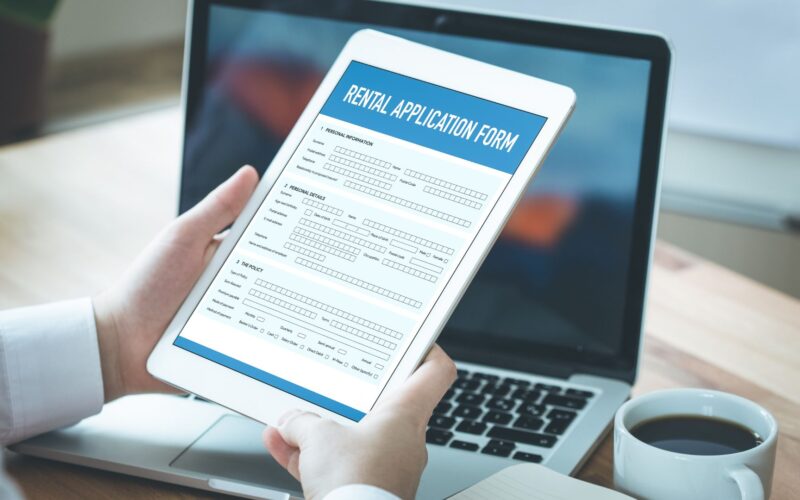Verifying a potential tenant’s income is essential for landlords and property managers to ensure tenants can reliably afford rent. Below, we explore how apartments verify income, common challenges, and ways applicants can streamline the process for a successful application.
Why Apartments Verify Income for Tenants
Income verification serves as a safeguard for landlords by providing evidence that tenants can afford rent and are likely to maintain regular payments. Generally, landlords prefer applicants whose rent-to-income ratio is around 30% of their monthly income and may also look at a debt-to-income (DTI) ratio below 45%. This ensures prospective tenants are financially stable enough to meet their lease obligations, reducing the likelihood of missed payments or evictions.
Common Methods Apartments Use to Verify Income
Landlords and property managers use several methods to verify income, each offering insights into an applicant’s financial situation:
1. Employment Letters and Employer Contact
Many landlords request a formal letter from the applicant’s employer that confirms their employment status, job title, and income level. This approach is often complemented by directly contacting the employer to validate the information, such as by calling the company’s main line to avoid potential misrepresentations. By confirming the details independently, landlords can gain a clearer picture of the applicant’s employment and financial stability.
2. Pay Stubs and Tax Returns
Providing recent pay stubs is one of the most straightforward ways to confirm regular income. Landlords may request the latest two or three pay stubs as they show income consistency and amounts. In addition, some landlords also request recent tax returns to review annual income, which can be particularly helpful for self-employed applicants or those with variable income streams.
3. Bank Statements
Bank statements provide a broader view of financial health, showing incoming deposits, spending habits, and overall balance stability. This method is especially useful for freelancers or self-employed applicants who may not have traditional pay stubs. By reviewing the frequency and amount of deposits, landlords can verify that the applicant has a consistent income flow.
4. Credit Reports and Debt-to-Income Ratio (DTI)
Credit reports offer more than a snapshot of creditworthiness; they also reveal existing debt obligations that factor into the applicant’s DTI ratio. An ideal DTI ratio, typically below 45%, suggests that the applicant’s monthly debt obligations won’t interfere with their ability to pay rent. This financial snapshot can provide valuable insights into the applicant’s capacity to manage rent on top of existing debts.
5. Third-Party Verification Services
Specialized tenant screening services, offered by companies like Experian or TransUnion, provide thorough background and income verification. These services confirm employment, income, and credit details and are often used by landlords who prefer an unbiased verification source.
Key Documents for Income Verification
To ensure a smooth verification process, applicants should be prepared to submit:
- Recent pay stubs (usually from the past 2-3 months)
- Tax returns (especially if self-employed)
- Bank statements (for consistent income proof)
- Employer contact information (for reference checks)
Challenges in Income Verification
Income verification can be challenging, especially for applicants without traditional income sources or consistent job history. Some common challenges include:
- Unverifiable Income Sources: If an applicant’s income comes from informal work or varies month to month, verifying a steady income can be difficult.
- Inconsistent Documentation: Missing or incomplete documents can delay the process, so providing clear, organized paperwork is crucial.
- Income Gaps: Landlords may view frequent job changes or income gaps as potential red flags. Applicants should be prepared to explain any gaps and provide additional documentation, like bank statements, to confirm stability.
FAQs
Can apartments verify income for self-employed applicants?
Yes, apartments can verify self-employed income through alternative documents such as tax returns, bank statements, and, in some cases, profit and loss statements. Providing a few months’ worth of bank deposits can also establish a pattern of consistent income.
What if I don’t meet the income requirements?
If an applicant doesn’t meet the income requirements, they may still qualify by using a co-signer, providing additional references, or offering a larger security deposit as assurance. Clear communication about potential challenges and proposing solutions can sometimes make up for income shortfalls.
How can I prove consistent income without a formal job?
Gig workers or individuals with irregular income can provide bank statements showing regular deposits, payment statements from freelance platforms, or client invoices. These alternatives help show a pattern of reliable income.
Conclusion
Income verification is a critical step for both landlords and tenants to ensure a reliable rental experience. By understanding the common verification methods and being prepared with appropriate documentation, applicants can make the process smoother, increasing their chances of securing an apartment.






